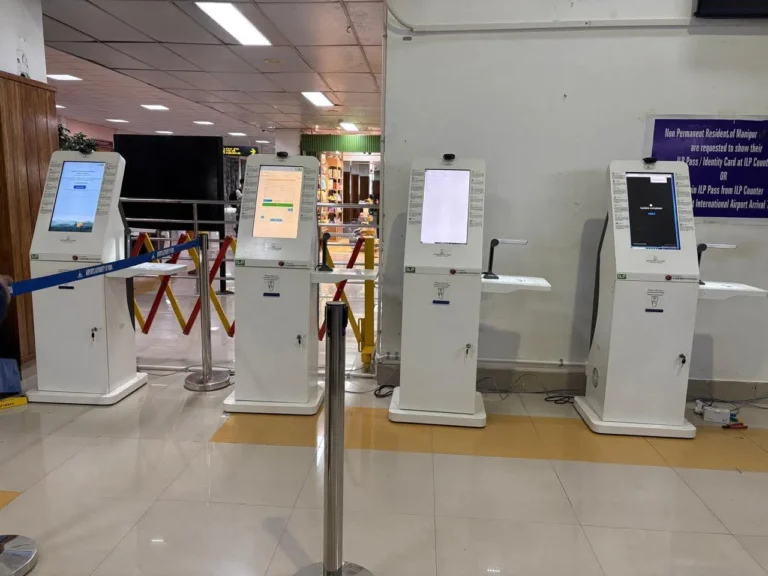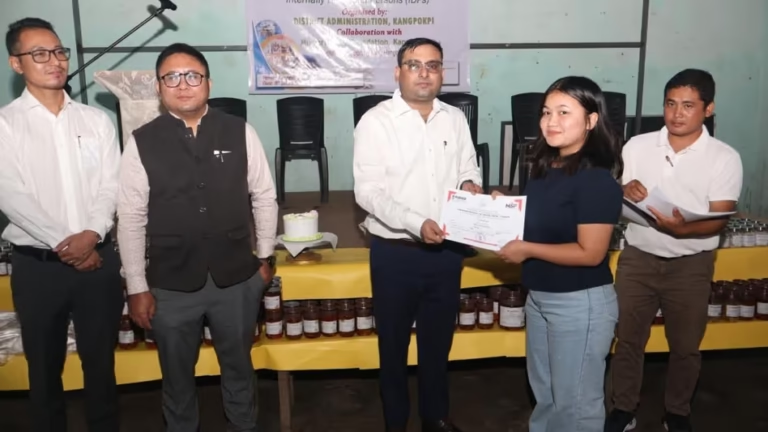Manipur: Security Forces Recover Arms and Ammunition in Kangpokpi District
Short Summary
Security forces conducted a successful operation in the Maohing village area, Kangpokpi District, Manipur, where they recovered several firearms and ammunition. The seized items included a locally made cannon, a .303 rifle, two hand grenades, and various rounds of ammunition. This operation is part of ongoing efforts to maintain peace and security in the region, combating illegal arms trade and insurgency activities.
Long Article
In a notable security operation on January 20, 2025, the security forces in Manipur uncovered a significant stash of weapons and ammunition during a search in the Maohing village area, located within the Kangpokpi District. This operation is part of the larger efforts by authorities to address the growing concerns around illegal arms proliferation and insurgency in the region. With Manipur’s volatile political and security landscape, such operations are critical to stabilizing the area.
The Details of the Seizure
The operation, conducted by the security forces, led to the seizure of several items used for violent and illegal activities. Among the items recovered were:
- 1 locally made cannon (Pumpi)
- 1 double barrel bore gun
- 1 .303 rifle with a magazine
- 1 locally made 9mm pistol with a magazine
- 2 hand grenades (without detonators)
- 4 live 16 bore rounds
- 7 blank 7.7 mm rounds
This recovery highlights the continued challenges faced by the authorities in curbing the flow of illegal weapons into Manipur. These weapons are often used by insurgent groups to carry out attacks on security forces, local officials, and civilians. Furthermore, they play a crucial role in sustaining violence and insurgency in the region.
The Importance of Kangpokpi District
Kangpokpi District, located in the heart of Manipur, has long been a sensitive area for security operations. The region lies in the foothills and borders areas that are often associated with insurgent activities. It has witnessed sporadic outbreaks of violence in the past, with various insurgent groups exploiting its remote and rugged terrain to operate with relative impunity.
The district’s proximity to international borders, particularly with Myanmar, makes it a prime location for illegal arms trafficking. Insurgent groups in the region often rely on smuggling weapons from neighboring countries, further complicating the security situation. Recoveries like this serve as a vital step in dismantling the networks that facilitate illegal arms trade.
Security Forces’ Role in Countering Insurgency
The security forces’ role in maintaining peace in Manipur cannot be overstated. The region has a complex history of insurgency, with multiple groups vying for control and autonomy. These insurgent factions often use arms, like those recovered in this operation, to further their cause and intimidate the population.
However, the local government and security agencies have been making concerted efforts to tackle this issue. Regular searches and intelligence-based operations are key components of these efforts. The authorities have been focusing on vulnerable areas, such as Maohing village, where insurgents are believed to have hidden their arms caches. Through such operations, the security forces aim to weaken the insurgent groups and stop the flow of illegal weapons.
The Continued Threat of Illegal Arms Trafficking
Illegal arms trafficking remains one of the most pressing issues for Manipur. With its porous borders, especially with Myanmar, the state has become a conduit for arms smuggling. These weapons are often routed through insurgent groups operating in the hills and valleys of the state before being used for violent activities.
Cross-border trafficking is a longstanding problem that has contributed to the region’s instability. The weapons recovered in Kangpokpi are part of a broader network that fuels unrest in the region. This illegal arms trade is not just a threat to the state’s security but also to the stability of neighboring regions.
Impact on Local Communities
While the recovery of arms and ammunition is a positive step toward securing the region, it also highlights the ongoing risks that local communities face. Many areas in Manipur are plagued by insurgent violence, and residents often live in fear of bombings, shootings, and ambushes. The proliferation of illegal arms exacerbates this fear, as it gives insurgent groups the means to carry out violent acts.
In addition, the smuggling of arms often involves local civilians, either directly or indirectly. Some people may unknowingly assist insurgents by providing safehouses, while others may be coerced or incentivized to support these illegal activities. The recovery of weapons, while an important law enforcement victory, does not immediately address the underlying socio-political issues that fuel the demand for arms.
The Role of Community Engagement
The fight against insurgency and illegal arms trafficking in Manipur cannot solely rely on security forces. It requires active engagement from the local population. Communities must work closely with law enforcement to report suspicious activities, support peace initiatives, and help dismantle insurgent networks. Public awareness campaigns are essential to educate locals about the dangers of illegal arms and the long-term harm they cause to both individuals and communities.
By fostering a sense of shared responsibility, security forces can build trust with the local population. This collaboration can help expose illegal activities and assist in the identification of arms caches. Communities that are invested in maintaining peace are better positioned to combat insurgency and help secure the region for future generations.
Ongoing Efforts and Challenges Ahead
While the recovery of arms in Kangpokpi is a significant achievement, it represents just one step in the broader effort to restore peace and security in Manipur. The region’s security challenges are complex and require multi-faceted approaches. Alongside security operations, the government must focus on addressing the socio-economic issues that contribute to the persistence of insurgent activities.
For example, improving education, creating job opportunities, and ensuring better governance in affected areas can help reduce the appeal of insurgent groups to vulnerable individuals. Additionally, border security must be strengthened to prevent the flow of weapons and drugs from neighboring countries. Cooperation with Myanmar’s authorities will be crucial in curbing cross-border trafficking and improving regional stability.
Conclusion: A Step Toward Lasting Peace
The recovery of arms and ammunition in Kangpokpi is a step in the right direction for Manipur, but the region’s road to lasting peace is still long. Ongoing efforts to combat illegal arms trafficking, insurgency, and socio-political instability must continue. A combination of strict law enforcement, community collaboration, and regional cooperation will be essential for bringing lasting security and stability to the state.
FAQs
- What weapons were recovered in Kangpokpi District? The recovered items included a locally made cannon, a double barrel bore gun, a .303 rifle, a 9mm pistol, hand grenades, and various rounds of ammunition.
- Why is Kangpokpi District important in the context of security operations? Kangpokpi lies near sensitive border areas and has been prone to insurgent activities, making it a key area for security forces to monitor and secure.
- What role do insurgent groups play in arms trafficking in Manipur? Insurgent groups in the region rely on illegal arms for violent activities, such as attacks on security forces, and to maintain their control over certain areas.
- How can local communities help in maintaining security in Manipur? Local communities can play a crucial role by reporting suspicious activities, cooperating with authorities, and engaging in peace-building initiatives.
- What are the long-term solutions to combat illegal arms trafficking in Manipur? Strengthening border security, enhancing regional cooperation, addressing socio-economic issues, and fostering community engagement are all essential for long-term peace.



